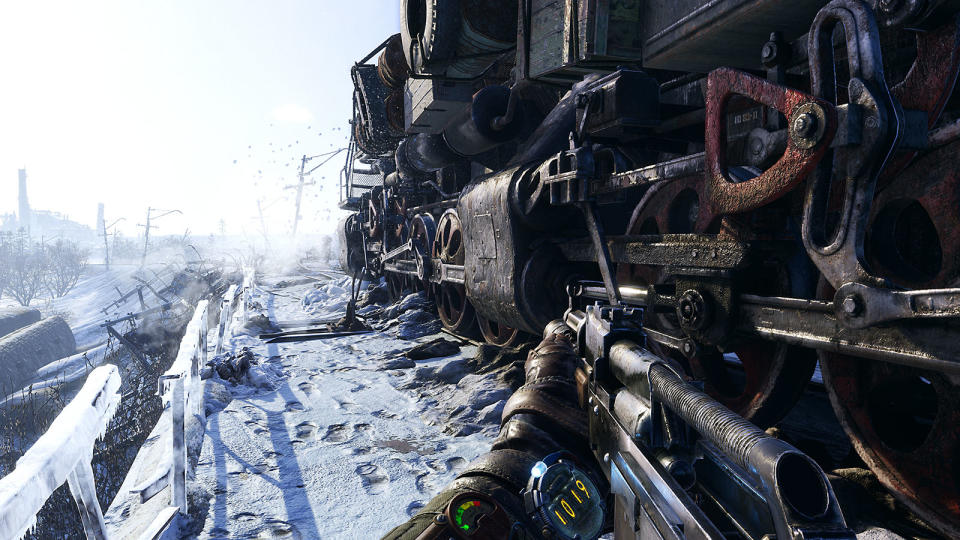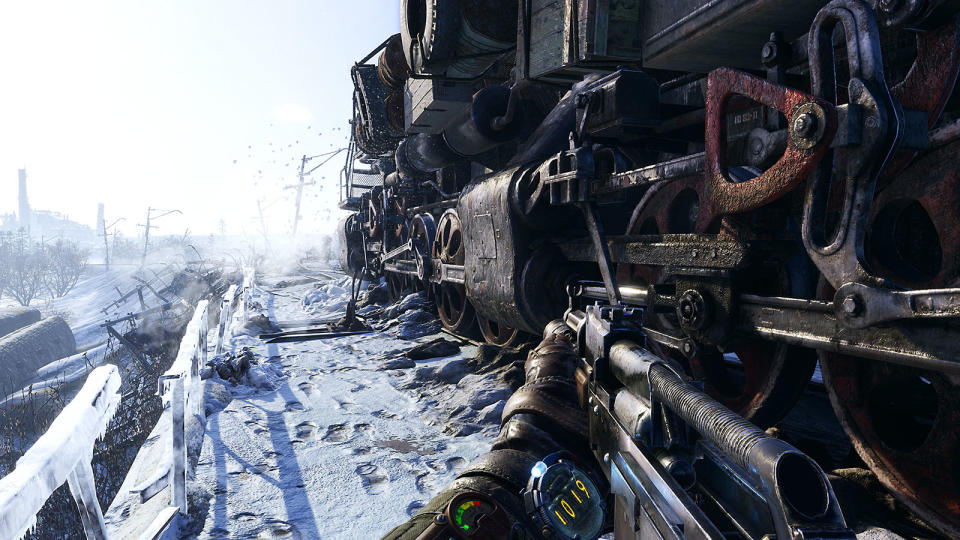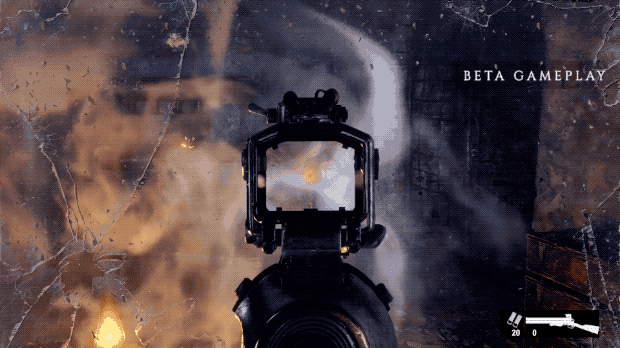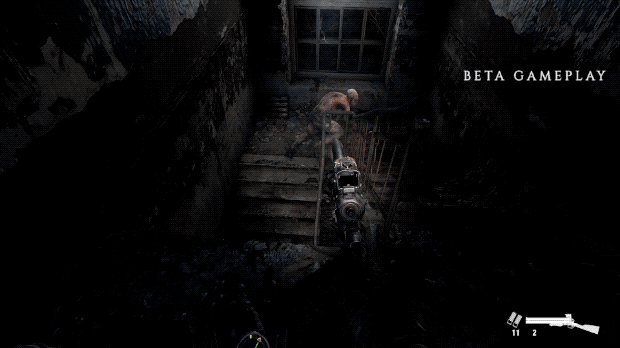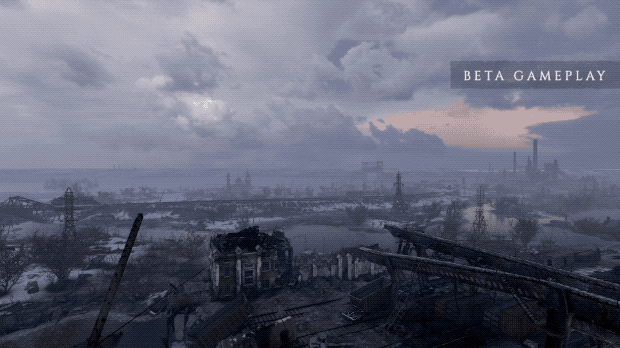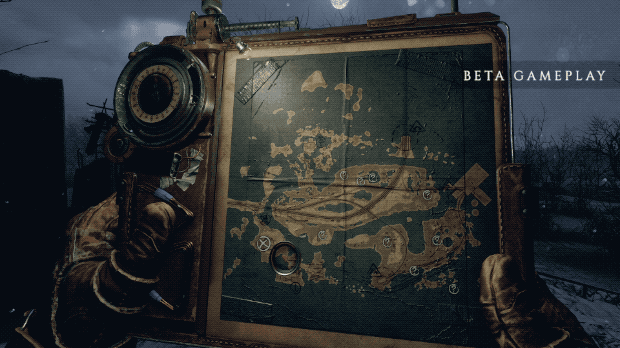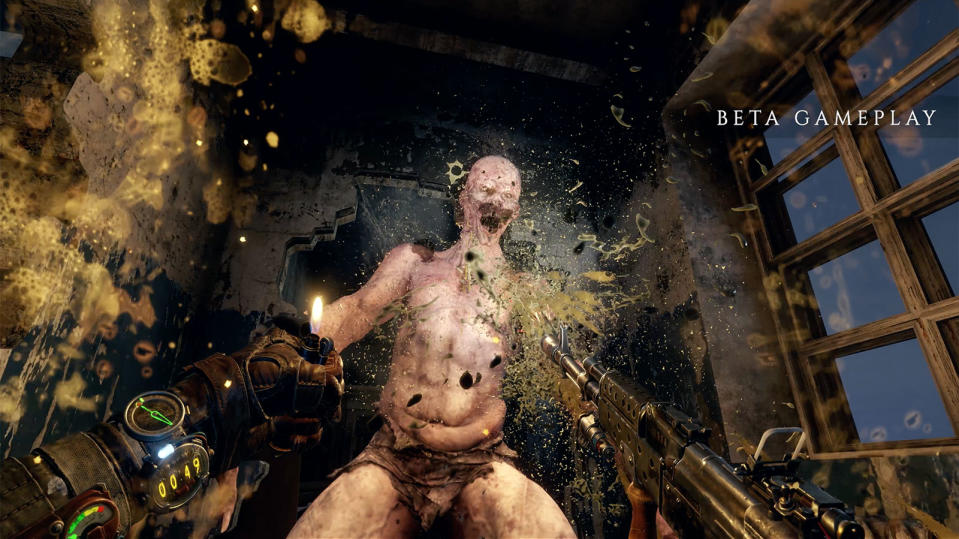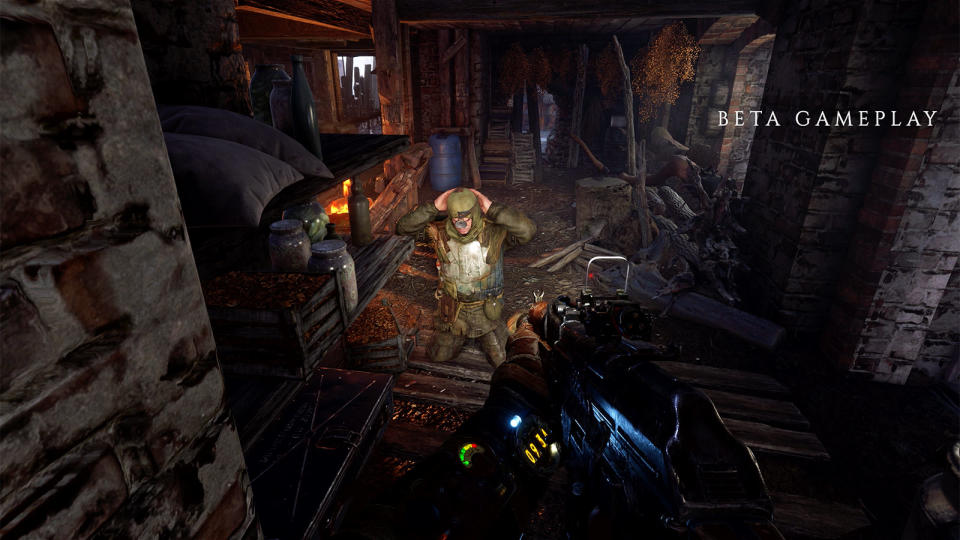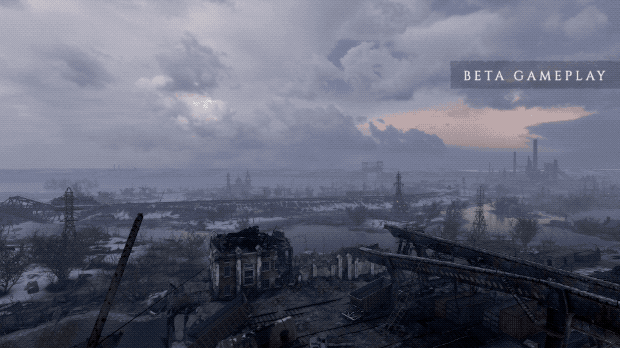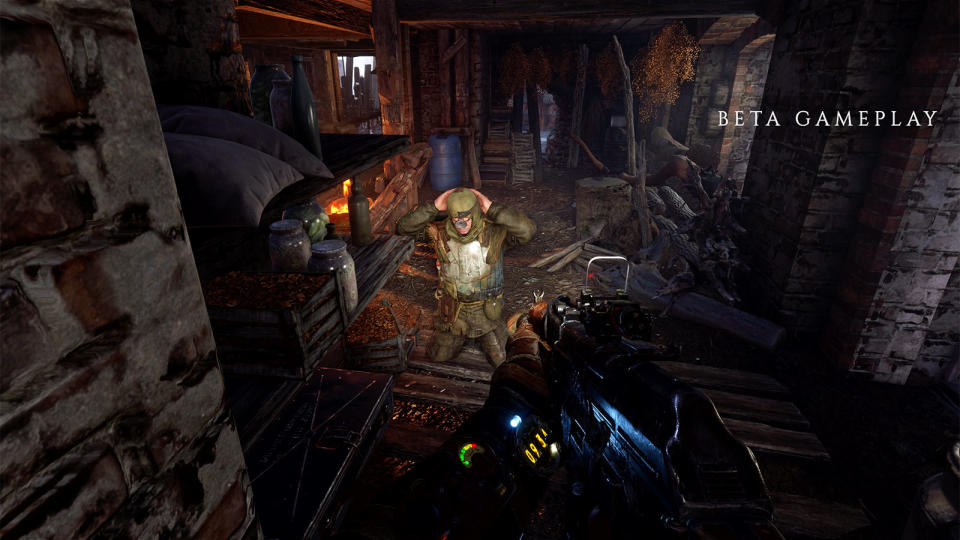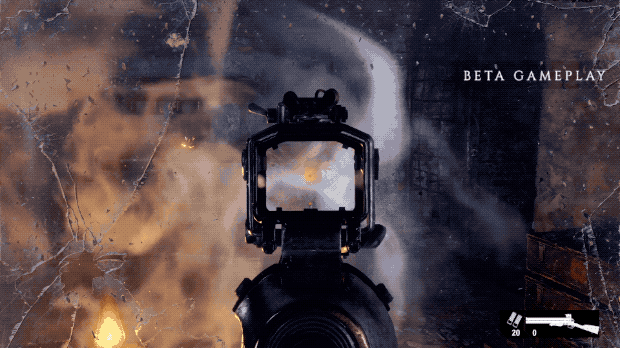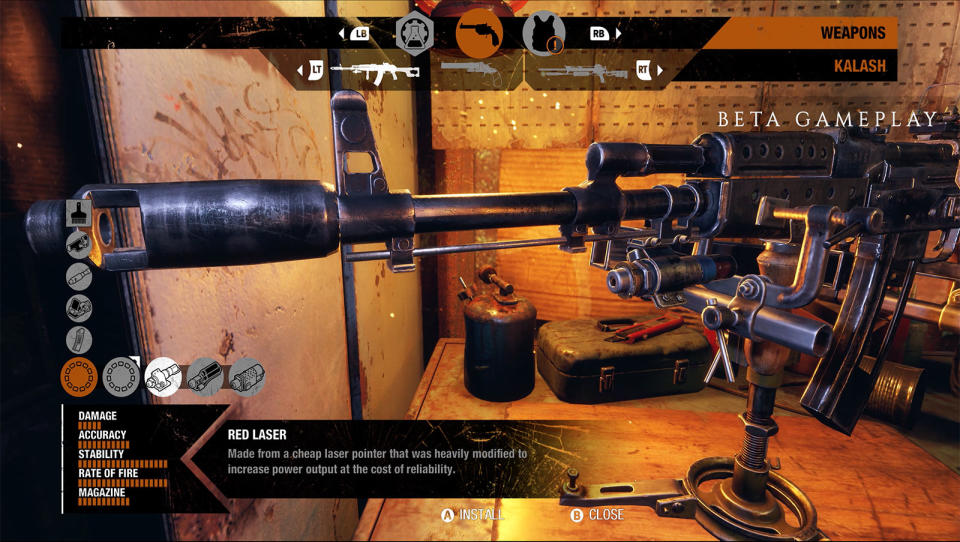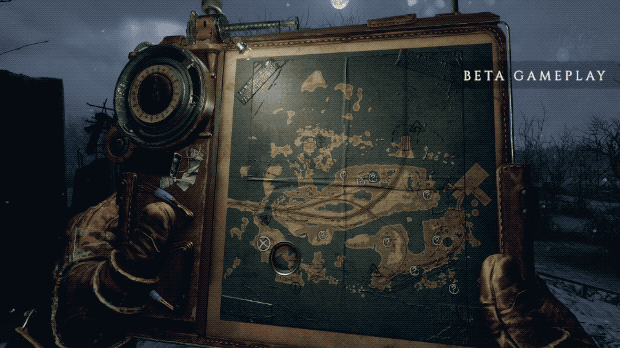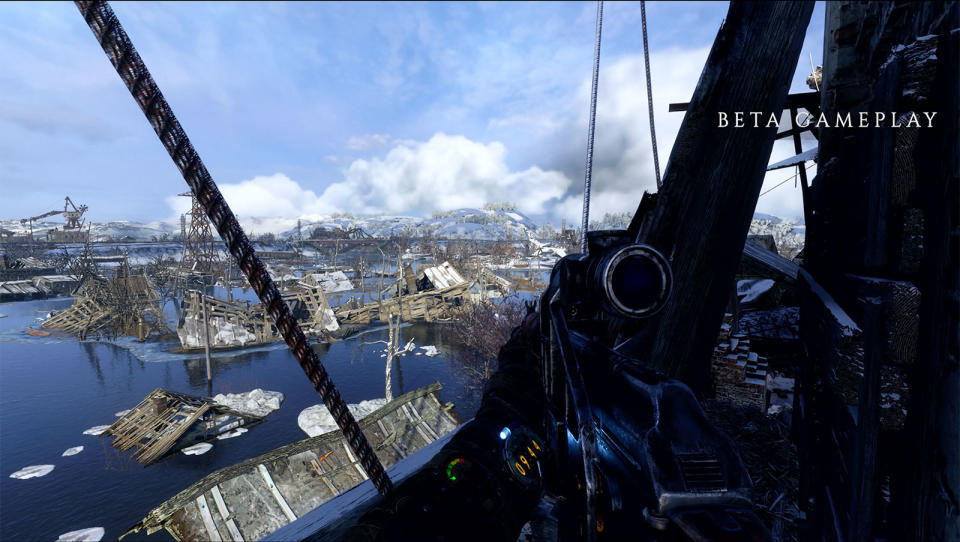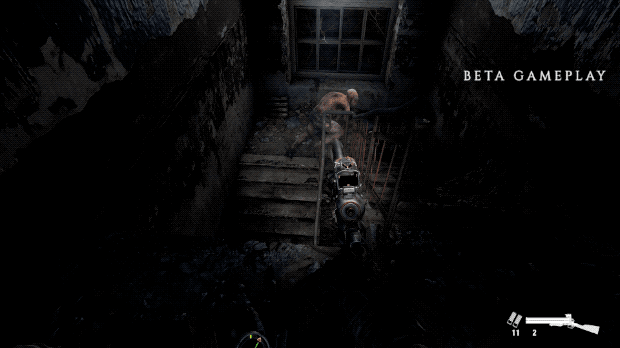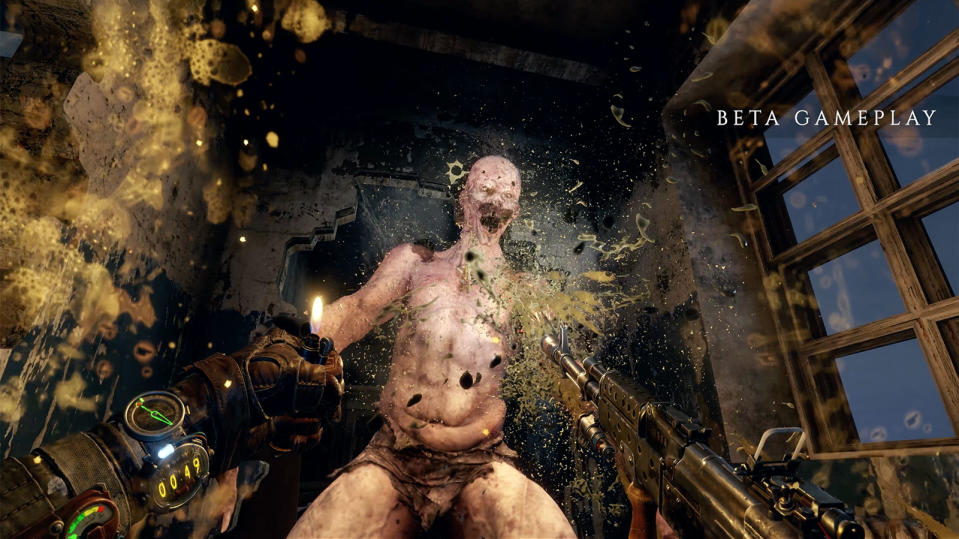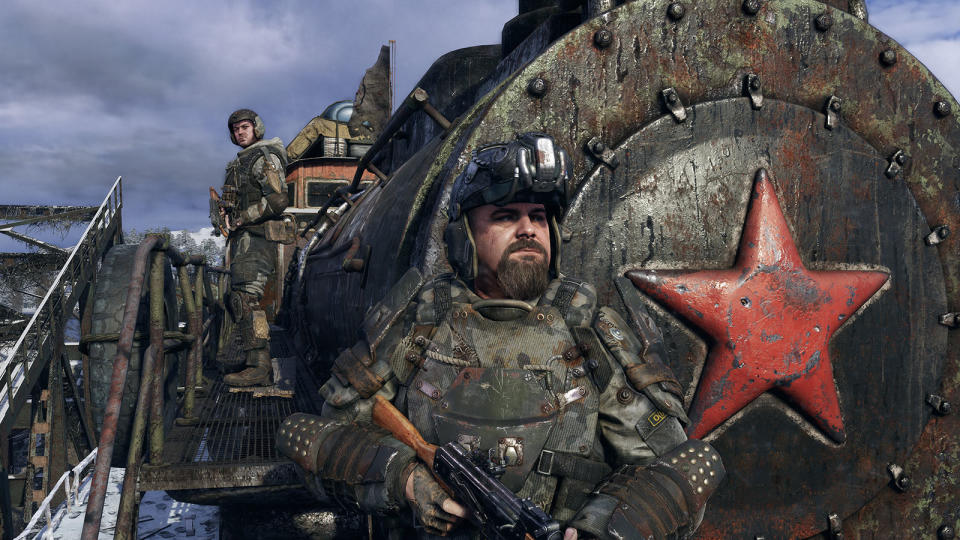'Metro: Exodus' treads a fine line between strategy and busy work
Crafting is now key to surviving the nuclear winter.
This year's E3 has already given us a glimpse of a wide spectrum of games, from upcoming installments in classic multiplayer franchises to new and interesting, story-driven titles. Metro: Exodus, the third game in the post-apocalyptic Metro saga, falls very much into the latter camp. Studio 4A Games announced the title at E3 2017, but all we've really heard since is that the release window has been pushed from later this year to early next. With development nearing completion, though, 4A Games is today spilling the beans on what we can expect from Metro: Exodus, both in terms of storyline and the nitty gritty of gameplay mechanics.
I got a little playtime with Metro: Exodus before the big reveal today, and came away with some mixed, albeit very early impressions. The game looks absolutely beautiful. That is, for the most part, as the cookie-cutter mutant enemies aren't quite as polished and realistic as everything else. Fresh looting and crafting mechanics add another dimension to gameplay compared with previous titles in the series. I fear, however, that this new focus on strategic exploration and resource management might unduly impact the pace of the game -- making it more about foraging for supplies than immersing you in the single-player storyline.

If you missed the previous two games, Metro 2033 and Metro: Last Light, the series is set in Russia in a near future where nuclear war has ravaged the planet. They're loosely based on a series of novels by Russian author Dmitry Glukhovsky, and follow the story of Artyom and his comrades in a constant struggle against radiation, mutants and resource scarcity. In Metro: Exodus, our young protagonist finally escapes the claustrophobic darkness of the Moscow metro system as he and fellow survivors venture out of the city on a train called the Aurora, in search of something better.
While mutated beasts and zombie-like humans continue to be a threat, the game places more emphasis on isolated factions of other survivors enduring the nuclear winter out in the wasteland. Going above ground and out of Moscow introduces a totally different style of play to previous games. The two preceding Metro titles have followed more or less linear trajectories, but Metro: Exodus blends in open-world elements for the first time. The game plays out over a number of large sandboxes. It's not truly open in the sense that when you progress to the next stage, you can't go back. But within each sandbox, there will be plenty to explore and various side quests that complement the overarching narrative.

The Metro first-person shooters have never been about running and gunning, with planning and restraint often being key to a longer lifespan. This theme continues in Metro: Exodus, which executive producer Jon Bloch describes as a "mixture of combat, stealth, exploration and survival." Exploration is the important word there, because with the more open sandbox environment comes new gameplay mechanics. Ammo no longer doubles as currency outside the Moscow subway. Instead of buying new guns and gear, players must scavenge resources and craft what they need to get through the game's various challenges.
You can still find bullets laying around, or loot them from dead bodies and enemies you've downed. Similarly, you can pick up new guns or simply strip them of attachments to add to your inventory. But you have to personally make most of what you need in-game using "materials" and "chemicals" you'll find scattered throughout the world. This is done primarily at special workstation areas dotted sparsely across the sandbox levels. Tracking down these cubbyholes is imperative. They are the only places you can clean your gun, which now gets dirty and unreliable the more you use it.

Most ammo types and explosives can only be crafted at these workstations. Your gas mask can be properly repaired here, too, though if it gets damaged in combat you can temporarily reseal it with duct tape, which is a nice touch. Adding new gadgets to your utility wristband, charging the batteries you need for equipment like your torch, and generally resetting and gearing up is the main purpose of these safe spaces. There's also a cot you can nap in to manipulate the new day/night cycle, which joins dynamic weather as another environmental element not seen in previous games (time and weather not being very relevant in the Moscow metro).
If you get caught short out in the world, you can find a dark corner, pull out your backpack and get some essential crafting done on the fly. You always have the option to switch up your weapon loadout -- sights, stocks, barrels, magazine types, lasers and more -- though they do look prettier mounted on one of the static workstations. Throwing knives, distraction devices and some special ammo types, like ball bearings the pneumatic gun fires, are available through the mobile backpack bench, too. Importantly, you now have to craft filters for your gas mask, one minute of protection at a time. Though radiation isn't a permanent threat, some sequestered areas and spots on the surface near ball lightning-like "anomalies" aren't survivable without a working mask.

The crafting side adds a new dimension to gameplay, with the strategic management of resources even more crucial to survival than before. While there are plenty of new mechanics in Metro: Exodus, some things will feel familiar to fans of the franchise. The minimalist HUD, for example, which only shows your current weapon and remaining ammo when you fire or reload, before disappearing again. There's obviously quite an extensive overlay needed for crafting, but otherwise your character and outfit does most of the legwork.
Your utility band includes a Geiger counter, a watch that displays the time and how long your gas mask filter is good for. You upgrade this over time, adding more gadgets like a compass. Similarly, the area map and your current objectives live on a physical board you have to hold up to your face to read. And when your gas mask filter begins to fail, the screen will start to fill with condensation as Artyom coughs and splutters. These design choices are all in the spirit of immersion, of course.

The idea of morality, or karma, is present in Metro: Exodus as well. Like previous games, how you interact with specific characters (and now the factions you encounter as a whole) has an impact on the storyline. These instances won't be heavily telegraphed or spoonfed to you, so you may not be fully aware when you've made a cruel or kind choice, or how that will change the narrative down the road. You also now have the option of holstering your weapon, which makes Artyom run faster but can change the way characters perceive you and how that initial encounter plays out -- you may come across as intrinsically hostile with your weapon drawn.
To 4A Games' credit, Metro: Exodus is graphically stunning. The world is weathered, gritty and so appropriately steampunk. The lore of the series is celebrated in every banged-up, makeshift gun attachment and deserted, ruined corner of the half-dead Russian wasteland. Previous Metro titles have been praised for their graphical prowess and attention to detail, which clearly remains a forte of the developer. Bear in mind I played the game in native 4K, but without HDR that'll be supported at launch in the first few months of next year.

The build I spent time with wasn't the finished product. All the content and features are done, but the game hasn't been optimized and polished in parts, which could explain the odd glitches I encountered such as an enemy clipping through a wall. As I've said, the different factions you run into on your journey are integral to the story, and the post-industrial swampland sandbox I explored was home to a group of anti-technology religious fanatics. Everything about this place alluded to a rich history, from their basic, utilitarian camp to the dialogue of members, particularly the introductory sermon of their charismatic leader.
The place they held in this part of the world seemed well-considered, and yet the mutants also scattered around the sandbox feel like a bit of an afterthought. Neither the zombies, dog-like creatures nor water-dwelling beasts were very detailed from a graphical perspective, and it was perhaps these more basic visuals that meant I didn't find them very believable. They weren't scary or particularly threatening; more of an annoyance, if anything, because if you miss your opening headshot even the wiry, generic zombies eat the best part of a clip before dropping.

The previous Metro games have been criticized for poor enemy AI, and the mutants still seem to be a bit on the stupid side. I didn't find line-of-sight to be a problem, for example, with noise and proximity being the most important aggression triggers, making stealth play a bit unpredictable around these tainted foes. At one point during my limited session, I got into a situation on a warehouse roof facing a zombie swarm. First time around, I died, but the next playthrough I found a little corner of the roof next to some boxes that the AI seemed to bug out on. There they stood, a horde of them lashing out and throwing rocks but not damaging me. And so I popped their heads, one by one, as much as it seemed like a waste of ammo.
I regretted this later on, because managing your resources -- bullets, materials and chemicals -- is core to the gameplay. There was one point I encountered a mandatory underground section, only to realize I had about 30 seconds left on my gas mask filter. I had to use the majority of this to craft another minute of uptime, but I neither had the resources nor the bullets to explore far enough into this dungeon to make any headway. A few cycles of this death loop and I was forced to load up an earlier save to go scavenge and whip up more filters.

This turned into a grind, and that's on top of the other busy work you find yourself doing. That's the exact phrase executive producer Bloch used to describe what 4A Games tried to minimize in-game, and yet I feel it was ever-present. When I explored new corners in search of crafting currency, I often had to spend bullets on roaming mutants, making the hunt feel counter-intuitive. And while I didn't play long enough to have to clean my guns, that mechanic also feels unnecessarily humdrum. The crafting mechanic does keep you on edge in the way a good survival game should, but it slows the pace of the game. Exploration is rewarded, but for me it teetered on the important distinction between discovery and a mindless search for loot.
My general takeaway was progression is relatively sluggish in Metro: Exodus. There's pockets of dialogue that go on for several minutes. Various other conversations happen in the background but I struggled to care, because there was so much of it. I worry that resource grinding could become all too frequent an occurrence, meaning you always need to feel as rich as possible before attempting the next challenge or risk revisiting the same load point over and over.

It would be unfair to pass any strong judgements at this point, especially as I feel like I never hit a good rhythm of progression. I only had an hour and change to playtest, and yet every sandbox level apparently requires several hours to explore in its entirety. I was trying to experience as much of the game as possible in a short preview window, so time was perhaps too valuable. When you're fully immersed in the story, and truly invested in the journey of Artyom and friends, every faction you encounter, enemy you kill and bullet you scavenge could take on another level of meaning -- being the very thing that takes the story to a different place, or leaves you roaming, dying from radiation poisoning in the enemy-infested nuclear winter.
Follow all the latest news from E3 2018 here!

